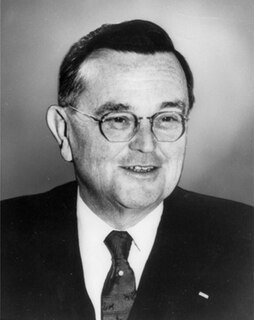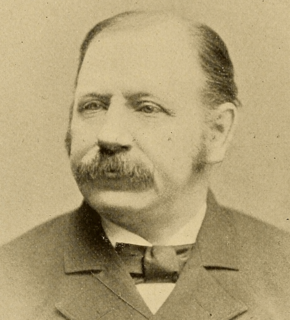Related Research Articles

The American Society of Mechanical Engineers (ASME) is an American professional association that, in its own words, "promotes the art, science, and practice of multidisciplinary engineering and allied sciences around the globe" via "continuing education, training and professional development, codes and standards, research, conferences and publications, government relations, and other forms of outreach." ASME is thus an engineering society, a standards organization, a research and development organization, an advocacy organization, a provider of training and education, and a nonprofit organization. Founded as an engineering society focused on mechanical engineering in North America, ASME is today multidisciplinary and global.
Yuan-Cheng "Bert" Fung was an American bioengineer and writer. He is regarded as a founding figure of bioengineering, tissue engineering, and the "Founder of Modern Biomechanics".

George Wallace Melville was an American engineer, Arctic explorer, and author. As chief of the Bureau of Steam Engineering, he headed a time of great expansion, technological progress and change, often in defiance of the conservative element of the Navy hierarchy. He superintended the design of 120 ships and introduced the water-tube boiler, the triple-screw propulsion system, vertical engines, the floating repair ship, and the "distilling ship." Appointed engineer in chief of the Navy, Melville reformed the service entirely, putting Navy engineers on a professional rather than an artisan footing.

James Murdoch Geikie PRSE FRS LLD was a Scottish geologist. He was professor of geology at Edinburgh University from 1882 to 1914.

Games Slayter was a prolific U.S. engineer and inventor. He is best known for developing fiberglass, starting with a new method of producing glass wool in 1933.

L.N. and M. Williams were a philatelic writing partnership made up of brothers Leon Norman Williams and Maurice Williams (1905–1976).
Gilbert Melville Grosvenor is the former president and chairman of the National Geographic Society, who previously served as the editor of National Geographic magazine. Now largely retired, Grosvenor and his wife Wiley live in Virginia.

Thomas Joseph Robert Hughes is a Professor of Aerospace Engineering and Engineering Mechanics and currently holds the Computational and Applied Mathematics Chair III at the Oden Institute at The University of Texas at Austin. Hughes has been listed as an ISI Highly Cited Author in Engineering by the ISI Web of Knowledge, Thomson Scientific Company.
The IEEE Medal of Honor is the highest recognition of the Institute of Electrical and Electronics Engineers (IEEE). It has been awarded since 1917, when its first recipient was Major Edwin H. Armstrong. It is given for an exceptional contribution or an extraordinary career in the IEEE fields of interest. The award consists of a gold medal, bronze replica, certificate and honorarium. The Medal of Honor may only be awarded to an individual.
Shu Chien, is a Chinese–American physiologist and bioengineer. His work on the fluid dynamics of blood flow has had a major impact on the diagnosis and treatment of cardiovascular diseases such as atherosclerosis. More recently, Chien's research has focused on the mechanical forces, such as pressure and flow, that regulate the behaviors of the cells in blood vessels. Chien is currently President of the Biomedical Engineering Society.

Professor Elfyn John Richards was a Welsh aeronautical engineer and acoustical engineer, the first professor of either of these subjects at Southampton University, where he founded the Institute of Sound and Vibration Research, and was the second Vice-Chancellor of Loughborough University of Technology.
Donald Laverne Katz was an American chemist and chemical engineer.
Melville de Mellow was an Indian radio broadcaster with the All India Radio. He is remembered for his high-quality reports and commentary on various events in independent India, the most notable of which was a seven-hour broadcast of Mahatma Gandhi's funeral in Delhi. He was conferred the Padma Shri by the Government of India in 1963 in recognition of his services to broadcasting.
Theodore H. Okiishi is an American mechanical engineer. He is an emeritus faculty member at Iowa State University (ISU), where he also received his bachelors and doctoral degrees. He has written numerous technical papers, and is a co-author of the books A Brief Introduction to Fluid Mechanics and Fundamentals of Fluid Mechanics. The latter has been called one of the "top 10 standard handbooks for mechanical engineers." Okiishi was appointed a Fellow of the American Society of Mechanical Engineers in 1992. He received the Society's R. Tom Sawyer Award in 2008, for his contributions to Gas turbine technology. He also received the Society's Melville Medal in 1989 and 1998, for his publications in the Society's Transactions.

Charles Harding Loring was a U.S. Navy admiral and chief engineer.
Samuel Arnold Greeley was an American civil engineer. He was largely responsible for the North Shore Sanitary District works from 1913 until 1963, and founded the engineering firm of Greeley & Hansen Consulting Engineers in 1914.

Sir Harry Work Melville, was a British chemist, academic, and academic administrator, who specialised in polymer research. He spent his early career in academia as a lecturer and researcher, before moving into administration as a civil servant and university college head.
Ervin George Bailey was an American mechanical engineer, founding president of Bailey Meter Company, manufacturer of industrial meters and controls, and inventor. He was recipient of the 1942 ASME Medal, and served as 67th president of the American Society of Mechanical Engineers.

Alexander Graham Christie was a Canadian/American mechanical engineer and Professor at the Johns Hopkins University, who served as president of the American Society of Mechanical Engineers in 1939-40.
Edwin Burnley Powell was an American mechanical and consulting engineer. He was awarded the 1954 ASME Medal for many years of consulting engineer. The ASME had argued, that in these days he was "probably the most widely consulted engineer in the public-utility field."
References
- ↑ Margaret A. Firth, ed. (1956). Handbook of Scientific and Technical Awards in the United States and Canada, 1900-1952. Special Libraries Association. OCLC 1222177.
- ↑ "Melville Medal - Society Awards". American Society of Mechanical Engineers.